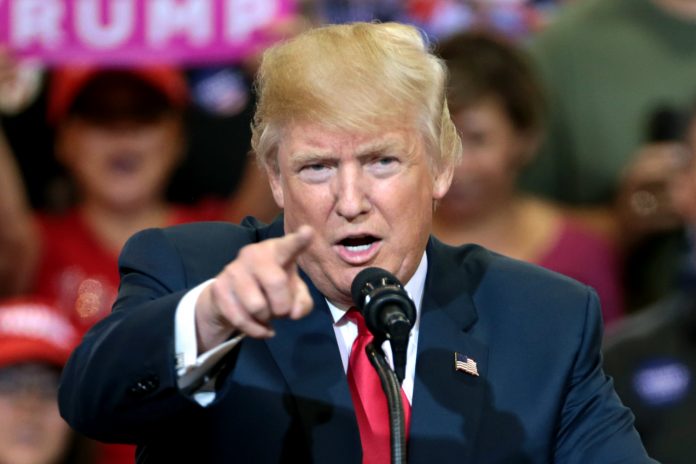Sinclair Lewis may or may not have written that “(w)hen fascism comes to America, it will be wrapped in the flag and carrying a cross.” Regardless of who said it first, that sentiment has captured the revulsion many Americans have long felt when far right leaders cloak their bigotry, cruelty and anti-democratic policies in false patriotism and Christianity. As the tragedy of the Trump administration continues, it is evident that Lewis’s sentiment, while still resonant should be modified somewhat. Under Trump, democratic rollback is wrapped in a clown suit and is carrying a smartphone.
Trump is not a fascist, but it doesn’t take a fascist to weaken American democracy, exploit and reinforce racist sentiments and pursue cruel and inhumane policies towards asylum seekers. Over the last few years, Trump has demonstrated he lacks the commitment, organizational skills or intellect to be a fascist, something for which I suppose we should be grateful, but he has revealed to be a clown-not in the cheery make you laugh way, but in the evil, disconnected from reality, but also not very bright way-perhaps the result of a union between Krusty from the Simpsons and Charlie Chaplin’s Great Dictator.
Under Trump, democratic rollback is wrapped in a clown suit and is carrying a smartphone
It was the latter that was brought to mind by Trump’s bizarre July 4th celebration and speech last week. Trump’s celebration of American military might, grandiose patriotic rhetoric and the partisan framing of the event were standard fare for illiberal leaders around the world. The line about the nascent American military taking over airports in the Revolutionary War sounded like something straight out of a Hollywood satire about a not very bright authoritarian president. Speeches like that are clownish, but also a not so funny a reminder that Trump’s authoritarian tendencies are at times hamstrung by his limited mental facilities.
Observers of Trump have become accustomed to this clownishness. Supporters generally attribute it to Trump’s belief in telling it like it is-although that is an odd way to describe much of the fantasies and lies that come out of Trump’s mouth-while critics of Trump have grown to accept that the President of the United States knows nothing about history and more or less makes everything he says up as he goes along.
Trump’s authoritarian buffoonish persona is uniquely suited to, and therefore uniquely dangerous for, the current cultural moment
Trump’s authoritarian buffoonish persona is uniquely suited to, and therefore uniquely dangerous for, the current cultural moment. After a decade or more in which comics like Jon Stewart, Trevor Noah, Stephen Colbert and John Oliver have played a significant role in progressive America, and in which a conservative comic with a similar approach never broke through, Trump’s style was welcome in conservative circles. His refusal to wrestle with complicated ideas resonated well with a movement increasingly grounded in ideas like denying scientific reality and dutifully ignoring data that contradicted their opinions. Trump’s name calling, offensive imitations and unapologetic style are exactly what a group of people whose identity is based in both being a powerful majority and in perceiving themselves as under threat want when it comes to humor. Trump’s is the humor of the self-pitying bully, but it resonates with his followers. Americans, particularly those who do not support the current president, must recognize that despite our disdain for Trump’s clown suit authoritarianism, the anger, anti-intellectualism and false sense of victimhood reaches very deeply into the gestalt of much of America.
The speed with which Trump has captured the Republican Party, rendering Republican Never Trumpers to little more than at best an historical footnote, and at worst a symbol of weakness and hypocrisy, has deepened the impact of Trump’s politics and style. The impact of Republican support of Trump’s politics is clear, but by turning the other way at his clownish conduct, ignorance and rantings-on Twitter or in real life-the Republican Party has contributed to a deterioration of political discourse that will make it extremely hard to rebuild a pluralist and democratic America after Trump. By allowing Trump to introduce rhetorical tools such as name calling, complete lack of historical knowledge and simply making up whatever one feels like into presidential discourse, the Republican Party has stripped bare the conditions that make democracy possible.
By allowing Trump to introduce rhetorical tools such as name calling, complete lack of historical knowledge and simply making up whatever one feels like into presidential discourse, the Republican Party has stripped bare the conditions that make democracy possible
As the 2020 election approaches and begins to dominate political punditry and conversation in the US, it is critical not just to ask the fun questions about who will be nominated and who will win, but to ask what American democracy, that despite decades of propaganda has always been a work in progress, can look like after even four years of Donald Trump. At least a third of the country has come to tolerate, even appreciate and demand, ignorance, arrogance and buffoonery from the President. Walking that back will be essential for the future of American democracy after Trump.
www.lincolnmitchell.com
Follow me on Twitter at http://twitter.com/LincolnMitchell

